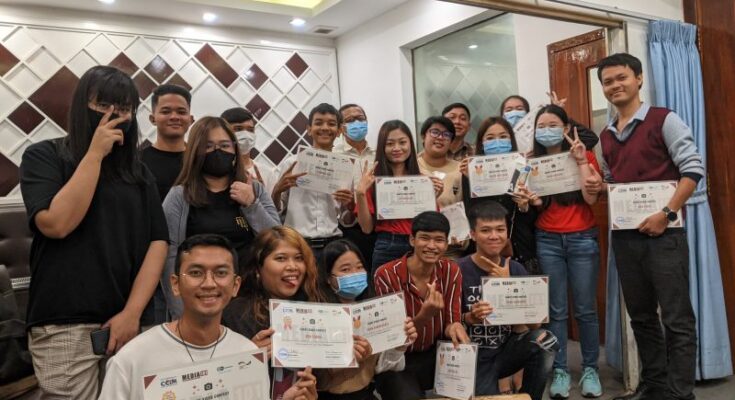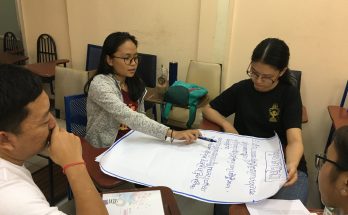14 videos were finalists in a competition on social media challenges.
CCIM announced the finalists in the video competition themed “The Challenges Youth are Facing on Social Media During COVID-19″ on December 24, and stated its objective:
The purpose of this competition is to encourage young people to use the media responsibly and safely and to promote youth participation in the media.
The winning video was produced by Hung San Socheata and Antong An. Entitled “Doubled edged sword,” the video underscores the potential of social media to provide real-time information, but that it can also be a platform for disseminating disinformation.
The first runner-up was the video produced by Chao Ly Hoang, Nguon Huy Tieng, and Prum Sok Leng, entitled “A day life during Covid-19.” It emphasizes the importance of being critical in consuming and sharing information on social media and instructs students to be more responsible in managing their time when they are connected to the internet.
Third place went to the video produced by Chhil Chek and San Chan Monineath. The video is “Misunderstand,” and depicts the consequences of using unverified online information in dealing with COVID-19. The storyline features a young man who made a “ting mong” (scarecrow) and used ground garlic, chili, and boiled eggs to cure his sister of COVID-19.
Another finalist in the competition was the video “Be Careful, Your Dream Might Come True,” which provides useful tips on how to detect “fake news” on social media.
The video “Sad Potato” is meant to motivate young Cambodians to spend quality time with their families as the pandemic lockdown continues to disrupt many lives.
The video “Pollution” provides relevant information about the use of social media in Cambodia and how disinformation, or “pollution,” can negatively affect the health of the online community.
As of December 15, Cambodia had recorded a total of 362 cases, with 312 recoveries. On December 23, a news report noted that no new COVID-19 cases had been detected in the country and that only 14 people were still undergoing treatment.
Despite the low number of COVID-19 cases in the country, the government has charged several journalists and critics for spreading “fake news” about the pandemic. Human rights groups have warned that authorities are using the health crisis to silence dissenting voices.
This article is written by Mong Palatino and originally published on Global Voices.



